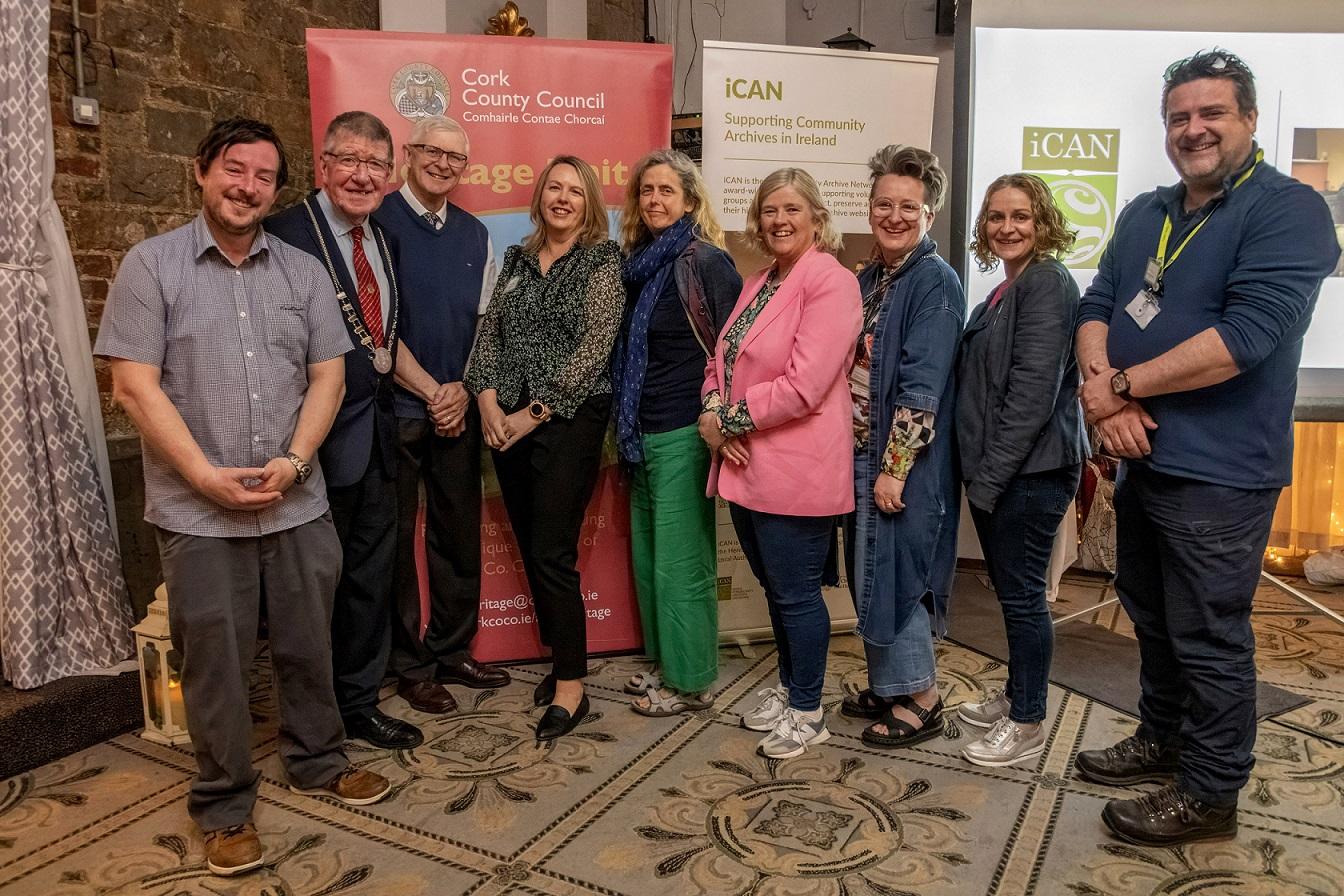New Guide to Researching and Writing Local History Launched in North Cork

Cork County Council’s Heritage Office joined with Kilshannig Heritage Society to host the annual gathering of the Irish Community Archive Network (iCAN) at Springfort Hall Country House Hotel, where a new publication by oral historian and author, Dr Tomás Mac Conmara was officially launched.
‘The possession of his every neighbour’: a guide to researching and writing Local History’ aims to encourage, support, and strengthen good practice in the way local history research is conducted and presented. The publication explores local historical research across eight separate sections, including a glossary of keywords, research tips and examples.
Mayor of the County of Cork, Cllr. Frank O’Flynn noted,
The guide was developed in response to the unprecedented increase in local history research across the country, as well as the proliferation of local history and heritage societies, journals, publications and websites over the last fifteen years. It aims to positively support these activities by providing straightforward guidance to ensure that this primarily volunteer-led effort makes the best possible impact on the local community it relates to, as well as the broader public.
Author Tomás Mac Conmara, who has written several publications on the memory of the Irish revolutionary period, spoke at the publication’s launch about the importance of local history enthusiasts, “I have been very aware for many years of the great work undertaken across the country by volunteers who are deeply committed to the heritage of their place and who give countless hours to recording and preserving their historical landscape. The intention of the book is to provide support to this effort and to, where helpful, offer guidance on the methods and approaches that are optimal in researching and writing about our past. Those connected to the communities they live in are often the best to explore and understand that landscape. I believe in the work of iCAN and can see the positive effect it has had for people and groups across the country. I will be very proud if this publication can provide some further support to this wonderful work.”
iCAN supports its members by providing training, guidance and support in addition to a secure digital platform where they can document and share their valuable local collections, research and articles. Collections on the iCAN Community Archives also include photographs, documents, videos, and oral recordings, ensuring that the rich heritage of our localities is accessible to people both at home and abroad. iCAN commissioned the guide primarily to support the work of its member groups across the country but hopes that it will have a broader application for those engaged in these activities.
Lorna Elms, iCAN Development Officer, National Museum of Ireland emphasised, that “It is important to acknowledge the community volunteers across Ireland working tirelessly and with a passion, to gather, preserve and make accessible their local history – without them our ability to better understand the nuances of our past and how it has shaped our Irish identity, would be severely hampered. We hope that this complete and accessible guide will become a must have handbook for those engaged in the practice of Local History.”
The book will be available through branches of Cork County Council’s Library Service or digital copies can be requested from [email protected]
For more information, visit Heritage Cork at https://heritagecork.org or iCAN at https://www.ouririshheritage.org
